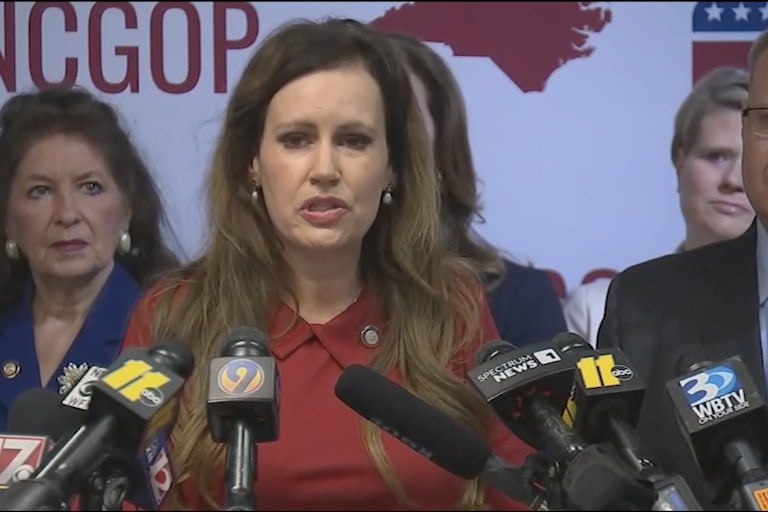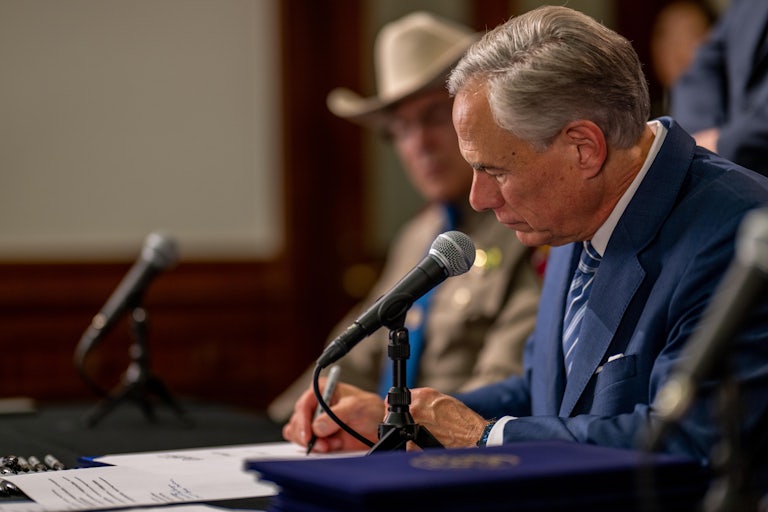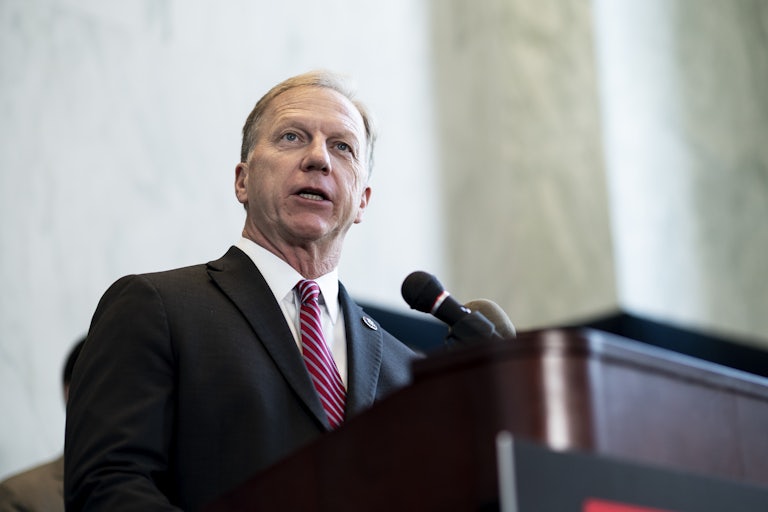N.C. Lawmaker Pretends She Never Got an Abortion After Switching Parties to Pass Abortion Ban
Tricia Cotham single-handedly gutted abortion access in the South. And now she’s lying about her own abortion.

The North Carolina representative who switched her party affiliation to Republican, paving the way for the state’s cruel 12-week abortion ban and decimating abortion access in the South, is now lying about the abortion she had years ago.
Tricia Cotham was a staunch advocate for abortion rights while she was still a Democrat, promising to codify reproductive rights after Roe v. Wade fell. In 2015, she spoke out against making patients wait 72 hours before they can get an abortion, citing her own experience getting one.
“My first pregnancy ended in an induced physician-assisted miscarriage. While I served in this chamber,” she told the state legislature. “Abortion is a deeply personal decision. It should not be a political debate. My womb and my uterus is not up for your political grab.”
But in a weekend radio interview while at the North Carolina Republican Party convention, Cotham denied having an abortion, saying instead she had a miscarriage.
“I had a miscarriage, and a miscarriage in medical terms is called a spontaneous abortion,” she said. “And instead of saying—first of all, they should not be talking about my miscarriage, that is just very painful and wrong. But they are repeating this message that I had an abortion. And that is false. And that is completely frustrating, and they keep on doing it, and that’s below the belt.”
A common Republican talking point is to portray medically assisted miscarriages and abortion as different things. This allows them to pretend they care about people who get pregnant, because they can say they aren’t actually banning medically necessary procedures.
Except, treatment for a medical miscarriage and abortion are the same: Either a health care provider will give the patient medication to induce the miscarriage and expel the fetus, or a doctor will dilate the patient’s cervix and remove the fetal tissue.
Cotham switched parties in April, an abrupt about-face that two of her former aides described as a “deeply petty, personal” decision. Autumn Alston, an activist who canvassed for Cotham’s last two campaigns (when she was a Democrat), told Jezebel that the lawmaker had felt underappreciated and ignored by the left, particularly abortion rights advocacy groups.
She wanted “to be the new shiny object in the Republican Party,” said Alston, who often advised Cotham too.
Cotham switching gave Republicans a supermajority in the legislature, allowing them to pass a 12-week abortion ban and later override Democratic Governor Roy Cooper’s veto of the measure.
So Cotham single-handedly gutted abortion access in the South, celebrated taking rights away from people, and is now making false claims about abortion. And yet she has the gall to say she’s “still the same person.”








